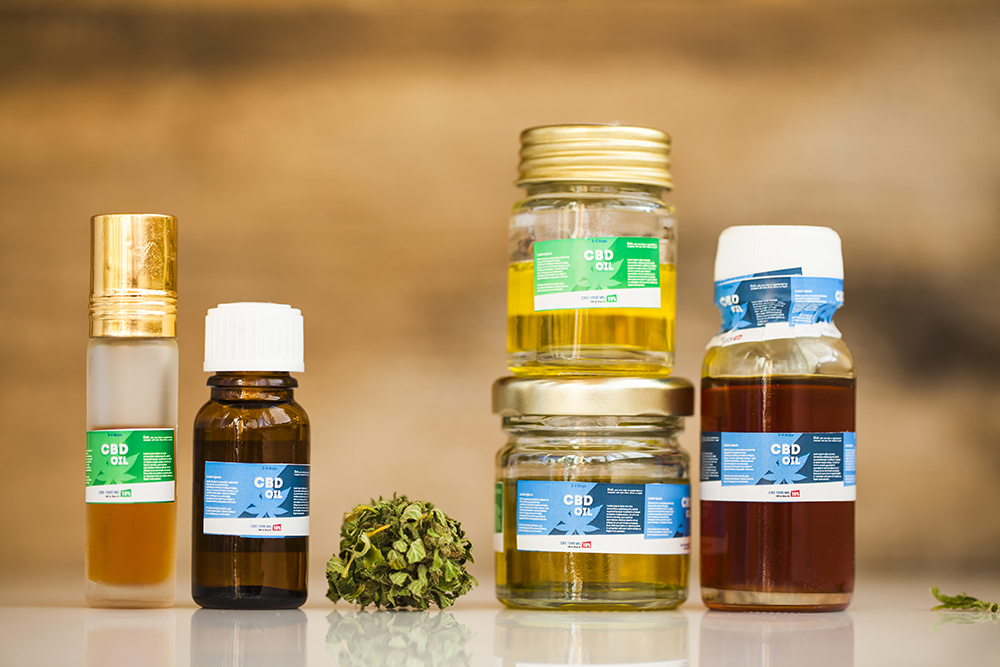CBD: Benefits without the Buzz
As a little kid, I couldn’t wait to grow up. As far as I was concerned, adults had it made: they could eat candy whenever they wanted and stay up all night! Turns out, I was sadly mistaken. As we’ve all learned, adulthood is fraught with endless tethers and responsibilities invisible to the 6-year-old eye. Full-time jobs, kids, animals, groceries, laundry, taxes, dust, and bills bills bills – the hamster wheel of life leaves most of us eager for the next opportunity to come up for air.
While most of us can agree that illegal drugs and excessive alcohol aren’t good coping tools, there’s less of a consensus when it comes to cannabis. Risks associated with illegal use are becoming moot as more and more states legalize it, and the proliferation of newly available CBD products blur the line between users and non-users.
CBD products don’t have THC -- the part of cannabis that gets you “high”. Cannabidiol (CBD) alone can improve mood, induce sleep, enhance appetite and reduce stress, pain, and anxiety without addictive properties or psychotropic effects. It’s no wonder, then, that these products are gaining a following and expanding the cannabis market. Rather than smoke a joint or eat a pot brownie, CBD consumers can get some peace by using drops, sprays, gel caps, lotions or oils.
So, who’s using CBD?
According to the MRI-Simmons National Cannabis Study, 3.7 million US adults are CBD consumers – that’s about 1.5% of the 18+ population.
They tend to be younger than the average adult, with a median age of 45. In fact, they’re 46% more likely to be age 25-34, and 20% more likely to be age 35-44. Though they have slightly lower household incomes ($52k on average, vs the $69k national average), they’re 43% more likely to be the sole wage earner in their home, and 26% more likely to be working parents. In short, they’re busy adults with a lot of responsibilities and little room for negative side effects from traditional marijuana or alcohol.
Given the properties of CBD – namely benefits without a buzz – it’s no shocker that prospects are more wholesome than the stereotypical pot smoker. In fact, compared to all cannabis users, CBDers are twice as likely to be Wellness Practitioners – one of the three cannabis-user segments tracked by MRI-Simmons’ National Cannabis Study. Wellness Practitioners are defined by their belief in cannabis’ health benefits, and their purposeful use for wellness. Less interested in “getting high”, they’re also more likely to engage in calming activities while using: 33% read, 32% meditate, and 13% practice yoga.
This segmentation alone allows us to see CBDers as a unique brand of consumer, who on average spend $52 a month on these products. To fully capitalize on this $2.3 billion market, CBD brands need a holistic profile of their targets. What products and brands do they like? What are their attitudes about medicine, health, wellness, and advertising? What are their top mobile apps, and what are they streaming on Netflix? Luckily, MRI-Simmons measures literally every angle of the American consumer’s life.
So, aside from being Wellness Consumers, how else are CBDers unique?
CBDers are 81% more likely to use nectars, 37% more likely to grind their own coffee from whole beans, and 34% more likely to drink flavored instant coffee. Vegetarian frozen burgers are more likely to end up on their dinner plates, and they’re inclined to offer their furry friends the treat of wet/canned food (rather than just the dry kibbles). In their down time, they’re inclined to enjoy photography, picnicking, and home decorating. Choosing healthy products and pastimes underscores their focus on holistic wellness, and their coffee habit hints at a need to stay caffeinated!
Taking insights to market
CBD marketers can use these insights to make tactical decisions about how and where to promote their products. Using yoga or meditation imagery in package design, partnering with local coffee companies to co-brand products, and distributing products to pet care and coffee shop retailers are a few ideas marketers could consider to improve chances of connecting with prospects.
For more insights on the cannabis consumer, contact us to learn more about our National Cannabis Study.



